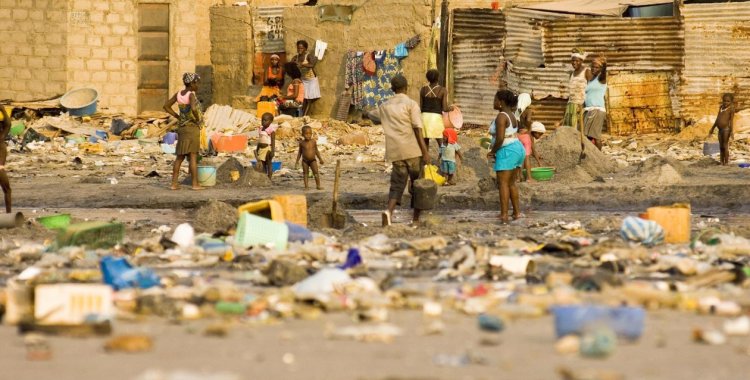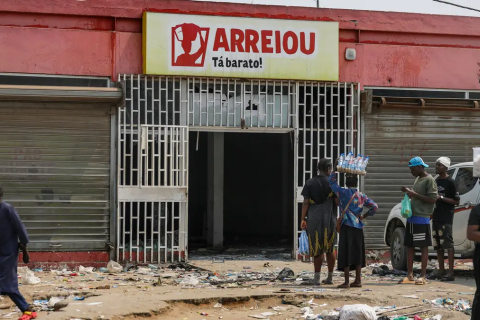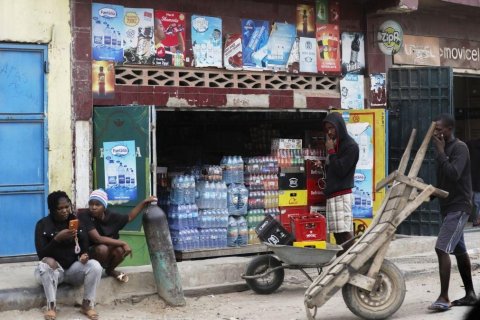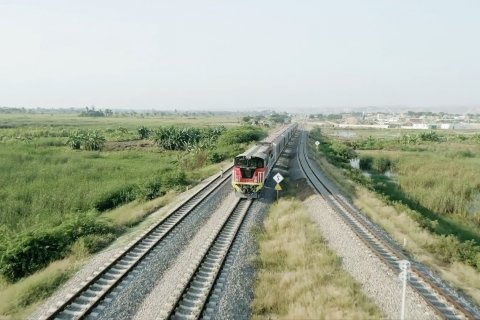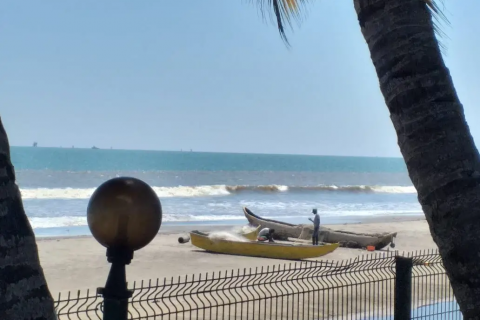Those who travel through Luanda easily see the piles of garbage, in the center of the city or in the peripheral areas, where the roadsides have become dumps, which in many cases hinder the mobility of vehicles and pedestrians.
In a round by the capital, Lusa found that the garbage had not been collected for several weeks in different areas.
To combat the smell and worms that are born there, setting waste on fire is often the solution, although fumes also cause problems.
Most of the open dumps, especially on the main and secondary roads, do not have small or medium-sized containers and those that still resist are overflowing with so much garbage.
Residents, passers-by, salespeople and motorists regretted the current situation and said they feared diseases, especially in this rainy season, in this scenario painted in sad colors.
"[The garbage] is very worrying, honestly, because it is an attack on public health and in this context we are already very saturated, we are worn out due to the garbage, because we have no mechanisms for how to take out the garbage and we are almost abandoned", he told Lusa a resident for almost 40 years in the Campismo neighborhood, in the municipality of Cazenga.
Cândido Zongo said that the residents of the area say they have been "abandoned by the authorities", because several contacts have already been made in order to remove the garbage at the entrance of the neighborhood, but the situation has been going on for weeks.
"The garbage has been here for a long time, it is on the way for two or three weeks, there are no more places to deposit and if there is no State intervention it will create more inconvenience. It is garbage that is already closing the roads for circulation of people and vehicles ", he lamented.
Children and adults in that neighborhood and elsewhere in Luanda found a source of subsistence in the trash, even to get some toys, said a resident of Campismo Anacleta da Silva Bungo, who said she feared diseases associated with the rainy season.
"This is extremely complicated due to diseases like cholera and malaria, because a lot of mosquitoes come out of here. The trash can has been here for a long time and we also need containers to be able to deposit the garbage," she stressed.
In the municipality of Cazenga, one of the most populous in Luanda, residents resort to drainage ditches to deposit garbage due to lack of containers.
Those who travel on national road No. 100, known as the right road to Cacuaco, in the north of Luanda, easily catch a glimpse, during the route, of the heaps of garbage on the ground, and the absence of containers is also striking.
In the village of Cacuaco, a municipality with the same name, the accumulation of waste is also gaining worrying contours and those looking for the daily bread, like Delfina Chicalanga, who sells face masks at the entrance to the Pedreira neighborhood, narrates the difficulties there to keep up.
"The garbage here is too much, the cars pass by, we can talk and [do] nothing, we have the pressure of the garbage and the inspectors and we work in full rush," she told Lusa.
The street vendor also expressed fears associated with unhealthiness. "In a little while they will set fire to this garbage and then we will be sick with the smoke," she stressed.
Motorcyclist Orlando Leonardo, on the other hand, also complained about the smell and the pile of garbage in the village of Cacuaco, saying that the situation, which he considered "harmful to his health and that of passengers", has persisted since last year.
"Even with containers, the garbage is always on the floor and is not removed. It's complicated, I don't know what's going on, but the Government has to look this way", he urged.
Last week, the governor of Luanda, Joana Lina, acknowledged the worrying situation of the garbage heaps in the capital, guaranteeing to find mechanisms to quickly overcome the situation.
In December 2020, Joana Lina suspended the contract with six cleaning and waste collection operators, due to the inability to support the contractual payment, indexed to the dollar, in kwanzas, in view of the sharp devaluation of the national currency.
Some companies have thus removed the containers from the places where they collected the waste, which is now being deposited on the ground in many streets and neighborhoods.

